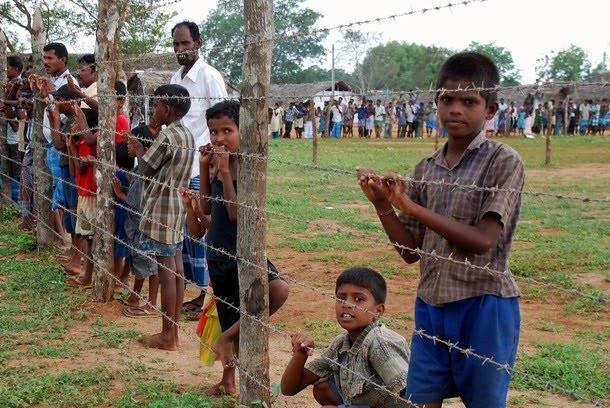The rehabilitation camp for Tamil refugees at Dindigul also has an overhead water tank with a capacity of 60,000 litres….reports Asian Lite News
The Sri Lankan Tamil refugees, who have been living in rehabilitation camps in Dindigul for the past 30 years, can now live in concrete houses.
Tamil Nadu Chief Minister M.K. Stalin on Wednesday inaugurated the Sri Lankan Tamil’s rehabilitation camp through video conferencing from Chennai.
M K Stalin said, “Today’s day started auspiciously with the opening of residences for Sri Lankan Tamils who are relatives of Koppulkodi who have returned to their motherland”.
The rehabilitation camp at Dindigul for Tamil refugees is spread across seven acres of land and has 321 houses. These houses have been constructed at a cost of Rs 17.84 crore. According to Dindigul district administration, each house has a 300 sq ft area with a living room, a bedroom, a kitchen, and a toilet. Each house cost Rs 4.95 lakh. The foundation stone for the project was laid in December 2021 and completed in nine months.

The rehabilitation camp for Tamil refugees at Dindigul also has an overhead water tank with a capacity of 60,000 litres.
Currently, 70 families who are living in the Dindigul camp will be shifted to the new concrete houses. Inmates of camps in Gopalpatti, Adiyanthu, and Thottanuthu will be shifted to the Dindigul rehabilitation camp.
Notably, it was the then Tamil Nadu Chief Minister M. Karunanidhi who had allocated thatched houses for Tamil refugees from Sri Lanka at Adiyanthu. The Sri Lankan Tamil refugees have reached the state in 1990 after they fled from the island nation during the civil war in that country.
Tamil Nadu minister for cooperation, I. Periyasamy, Minister for Food and Civil Supplies, R. Sakkarapani and Minister for Minorities Welfare and Non -Resident Tamils welfare, Gingee S. Masthan handed over the keys of the houses to the benefeciaries.
3,04,269 Lankan Tamils have arrived in Tamil Nadu overall since 1983. 58,822 of them were residing in 108 camps spread throughout 29 districts. To protect their women and children, they fled the war-torn island nation and sought safety in the state.













